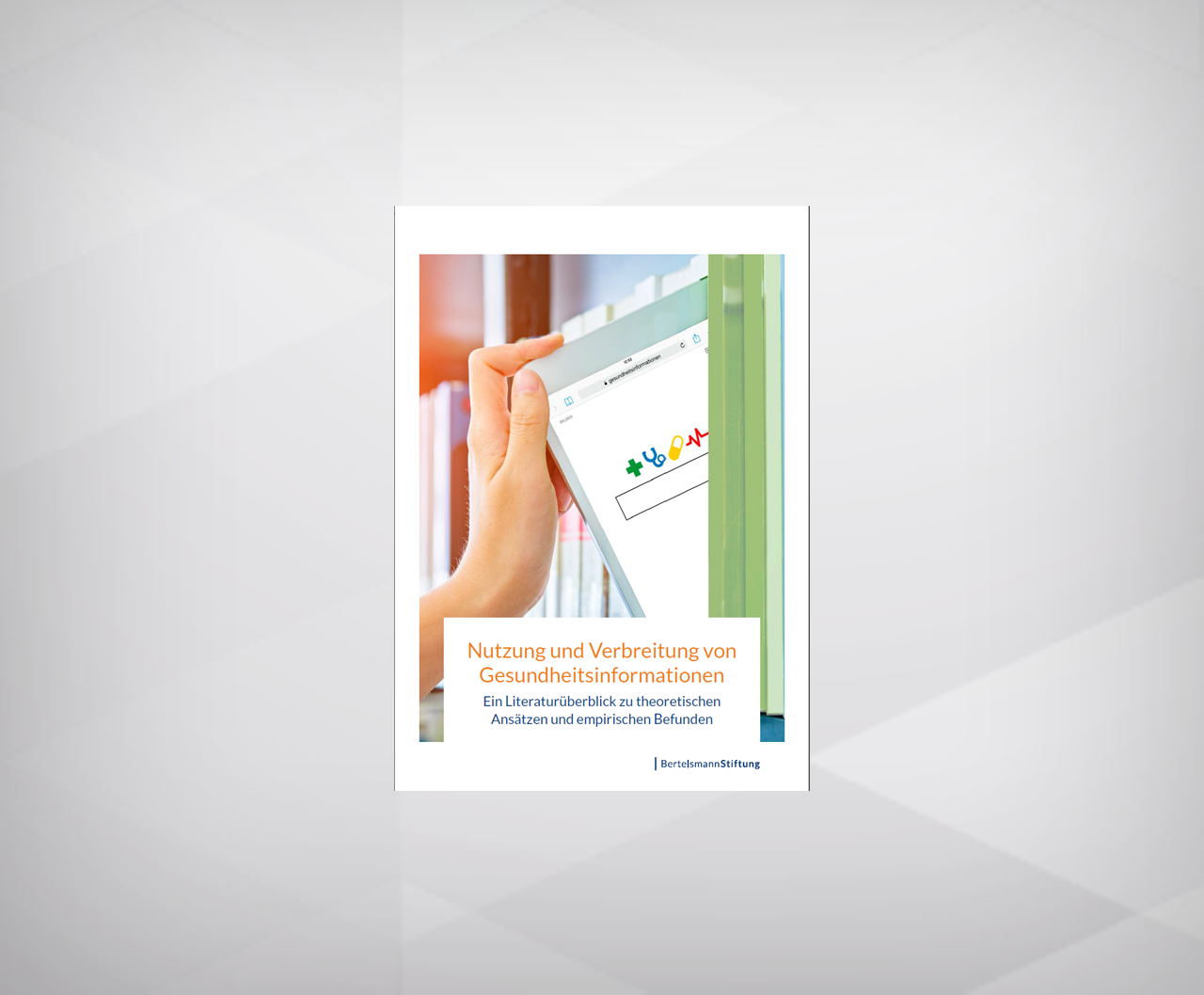The Internet has become increasingly important for the active search for health information in recent years. However, in the average population, it still lags behind personal conversations with doctors, family and friends as well as free brochures or mass media.
How someone searches for health information varies greatly from person to person and depends not only on personal and sociodemographic characteristics, but also on health-related characteristics such as general health awareness and the health literacy of users. In addition, situational factors such as the current state of health, emotions and a perceived lack of information also play a role. The latter can also be related to the doctor-patient relationship, because the situational factors do not only lie in the person, but also in his or her environment and the available interpersonal and media sources of information. The available information is assessed primarily on the basis of its usefulness and credibility. The Internet is often considered to be particularly efficient and provides a wealth of information. Search engines are usually a starting point for the search.
The Hans-Bredow-Institut and the University of Erfurt have compiled a synopsis of available scientific findings for the Bertelsmann Stiftung on the dissemination and processing of health information. The research overview aimed at answering the following questions: Which types of health information can be identified? How and via which media do people generally (i. e. without health impairments) inform themselves about health topics? How does behaviour towards the health-related information change (in the event of an illness)? How is health-related information processed? The overview of the forms of dissemination of health-related information was based on already existing systematics, whereby ways of communication and the potentials to educate were taken into account.
